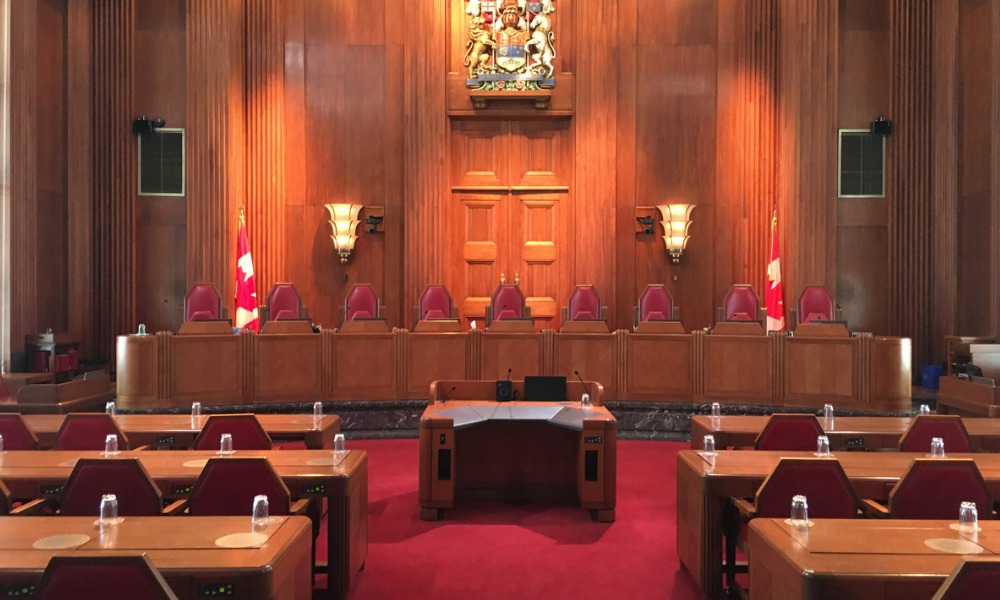Supreme Court of Canada's winter session preview, part one

The question of how juries should be instructed on what constitutes a criminal organization, another case looking at whether the Charter supersedes laws of a self-governing nation, and a third case considering if there is an inherent right to privacy attached to an IP address are among the legal issues the Supreme Court of Canada will deal with in its upcoming winter session.
The SCC will hear 17 appeals in the session, which begins Jan. 9. Eleven of the appeals are criminal cases, eight of which are coming to the court as of right. Another case is before the court as of right because it is a provincial reference.
At 9:30 am on Jan. 11, the court will begin hearing the appeal in Ahmed Abdullahi v. His Majesty the King. The appellant in that case, which originated in Ontario, is a man convicted of participation in the activities of a criminal organization for the purpose of trafficking weapons.
At the Court of Appeal, Abdullahi argued that the trial judge had failed to adequately instruct the jury on the definition of “criminal organization.” While the appellate court’s majority found the trial judge’s charge sufficient, the dissenter, Justice David Paciocco, found the instructions failed to communicate to the jury that under s. 467.1(1) of the Criminal Code, the alleged criminal organization is required to have “structure” and “continuity.”
In Abdullahi, the SCC will consider what constitutes adequate jury instructions on the definition of criminal organization under s. 467.1(1).
On Jan. 17, the court will hear Andrei Bykovets v. His Majesty the King, which comes to the SCC as of right from Alberta.
This criminal prosecution originated from a police investigation into gift cards purchased with fraudulent credit card information. Police tracked the transactions to two IP addresses, got search warrants for two residences associated with the addresses, and arrested and charged Andrei Bykovets with 33 offences.
Bykovets argued that connecting him to the transactions through his IP addresses was a breach of his rights under s. 8 of the Charter, which protects against unreasonable search or seizure. The trial judge found that a subjective expectation of privacy in an IP address was objectively unreasonable and convicted Bykovets on 13 of the 33 counts.
After the Court of Appeal was split on the issue, the SCC will now consider whether there is a reasonable expectation of privacy in an IP address.
The first appeal heard in February will be Cindy Dickson v. Vuntut Gwitchin First Nation. In September, Jason Madden told Canadian Lawyer that Dickson is one of two upcoming SCC cases that will “deal with the elephant in the room when it comes to modern Aboriginal law” by considering how pre-existing Indigenous law, jurisdiction, and self-government reconciles with Canada’s constitutional architecture. Madden is an expert in Indigenous rights law and co-managing partner of Pape Salter Teillet LLP in Toronto.
Dickson is a member of the Vuntut Gwitchin First Nation in the Yukon who tried to run for the First Nation’s Council. But the Vuntut Gwitchin constitution requires councillors live in the First Nation’s settlement land, which is 800 km away from Whitehorse, where she lives for family, medical, and socio-economic reasons. The constitution also states that candidates residing outside of the settlement land must move there within 14 days of being elected.
Dickson tried to get the Vuntut Gwitchin council to remove the residency requirement, but it refused and rejected her candidacy. She sought a declaration from the Yukon Supreme Court that the requirement violated her right to equality under s. 15(1) of the Charter and was of no force or effect.
The court found that, while the residency requirement did not violate s. 15(1), the 14-day relocation time limit did, and both parties appealed to the Court of Appeal.
The appellate court found that the residency requirement was a violation of s. 15(1), but was shielded by s. 25, which states that Charter rights and freedoms “shall not be construed so as to abrogate or derogate from any Aboriginal, treaty or other rights or freedoms that pertain to the Aboriginal peoples of Canada.”
Vuntut Gwitchin First Nation signed a self-government agreement in 1993, and in Dickson, the SCC will consider whether its constitution supersedes Dickson’s Charter rights.
“This case will be the first that deals with s. 25 of the Charter, and whether it shields laws enacted by Indigenous governments from Charter scrutiny,” says Bridget Gilbride, a partner at Fasken and counsel for Dickson. “Ms. Dickson says s. 25 should not operate in this manner and that Indigenous persons should have full access to Charter protection against discriminatory laws, whether they are enacted by Canada, a province or territory, an Indian Act band, or a self-governing Indigenous Nation.”
If the decision of the Yukon Court of Appeal stands, s. 25 will function as an “automatic shield,” protecting laws of Indigenous governments from Charter claims,” she says. “If not overturned by the Supreme Court, this could have serious negative consequences for all Indigenous persons in Canada.”










